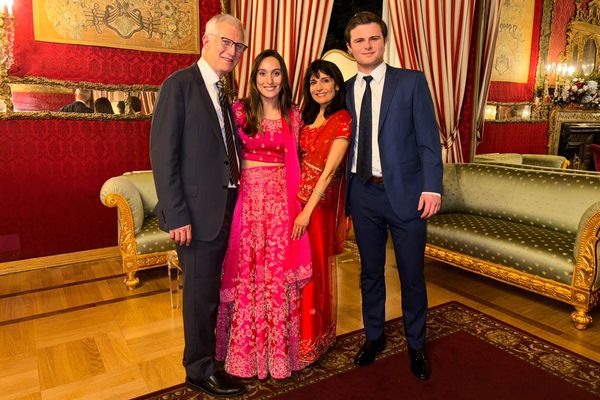John le Carré’s literary archive is not only preserving his cultural legacy but also securing his children’s financial future – saving them a hefty tax bill as his works gain fresh momentum on the global stage.
Arts Council England has revealed that the late author’s archive – comprising 918 boxes and valued at £1.5m – has been officially classified as cultural heritage. This designation allows the sum to be offset against inheritance tax while ensuring the collection remains preserved for the nation.
The extensive archive includes manuscripts, draft texts, research notes and travel diaries from across le Carré’s career, according to the national development agency for creativity and culture. Currently, the archive has been temporarily allocated to the Bodleian Library at the University of Oxford, pending a decision on its permanent home.
Le Carré’s influence doesn’t stop there. Two of his sons manage the production company with exclusive rights to adapt his novels for the screen, while another continues his legacy by writing new stories featuring George Smiley, his most famous creation.
David Cornwell, better known by his pen name John le Carré, was working in MI6 when he shot to fame as an international bestselling author in the 1960s.
Many of his works, including The Spy Who Came in from the Cold (1963), Tinker Tailor Soldier Spy (1974), and A Perfect Spy (1986), were adapted to the screen and have been described as some of the best novels produced in post-war Britain.

Simon and Stephen Cornwell, two sons from his first marriage, run The Ink Factory, a production company with exclusive rights to adapt his work. Meanwhile, Nick Harkaway, his son from his second marriage, writes “continuation novels” expanding on his father’s creations.
The Ink Factory has ambitious plans to bring Le Carré’s works to Asian markets following the success of a Hindi-language adaptation of The Night Manager, a six-part television series that earned an International Emmy nomination in 2023. The company, which holds “first-look rights” to Le Carré’s catalogue, has already secured deals with the BBC and Amazon for two more series of The Night Manager.
Describing these deals as a “significant milestone,” The Ink Factory noted that they represent the first adaptations to move beyond Le Carré’s original source material. The company is also optimistic about greenlighting another premium English-language series this year.

Among the titles being considered are The Honourable Schoolboy, the middle book of the epic Karla trilogy, which has only been adapted for radio, and A Perfect Spy, widely regarded as Le Carré’s most autobiographical work and described by Philip Roth as “the best post-war English novel”.
The 2016 English-language adaptation of The Night Manager, starring Tom Hiddleston and Elizabeth Debicki, remains a family money-spinner and helped usher in a new golden age for literary estates. With streaming giants eager for high-calibre, long-form content, Le Carré’s body of work has found enduring appeal.
Meanwhile, George Smiley, Le Carré’s most beloved creation, has been given a fresh literary life by Nick Harkaway. Last year, Harkaway released Karla’s Choice, a novel set in a previously unexplored 20th-century period. The book received widespread acclaim, with Harkaway sharing that his father had given him explicit permission to write within his fictional world.

Harkaway revealed that a letter of wishes from Le Carré had been discovered, encouraging his children to ensure his work remained alive and expanded to new audiences. “It asked us to ensure that the books continued to be read, to broaden the audience, and to reach new audiences. The authorial wish was clear: I want to be remembered, I want my work to continue,” he said in an interview with The Independent.
Le Carré’s private life was as compelling as his fiction. A former spy for both MI5 and MI6, he was also revealed to be a serial adulterer in Adam Sisman’s 2023 biography, The Secret Life of John le Carré.
Commenting on his father’s affairs, Harkaway offered a measured perspective: “As far as I was concerned, I was living a perfectly happy, normal family life. I mean, yes, OK, their marriage was complex and non-standard, but that makes it sound more dramatic than it was. My mother always considered herself a winner. She held the field. True, there were mistresses, but she stayed, and he returned reliably to her, every single time. My experience of them was that they were a unit.”







